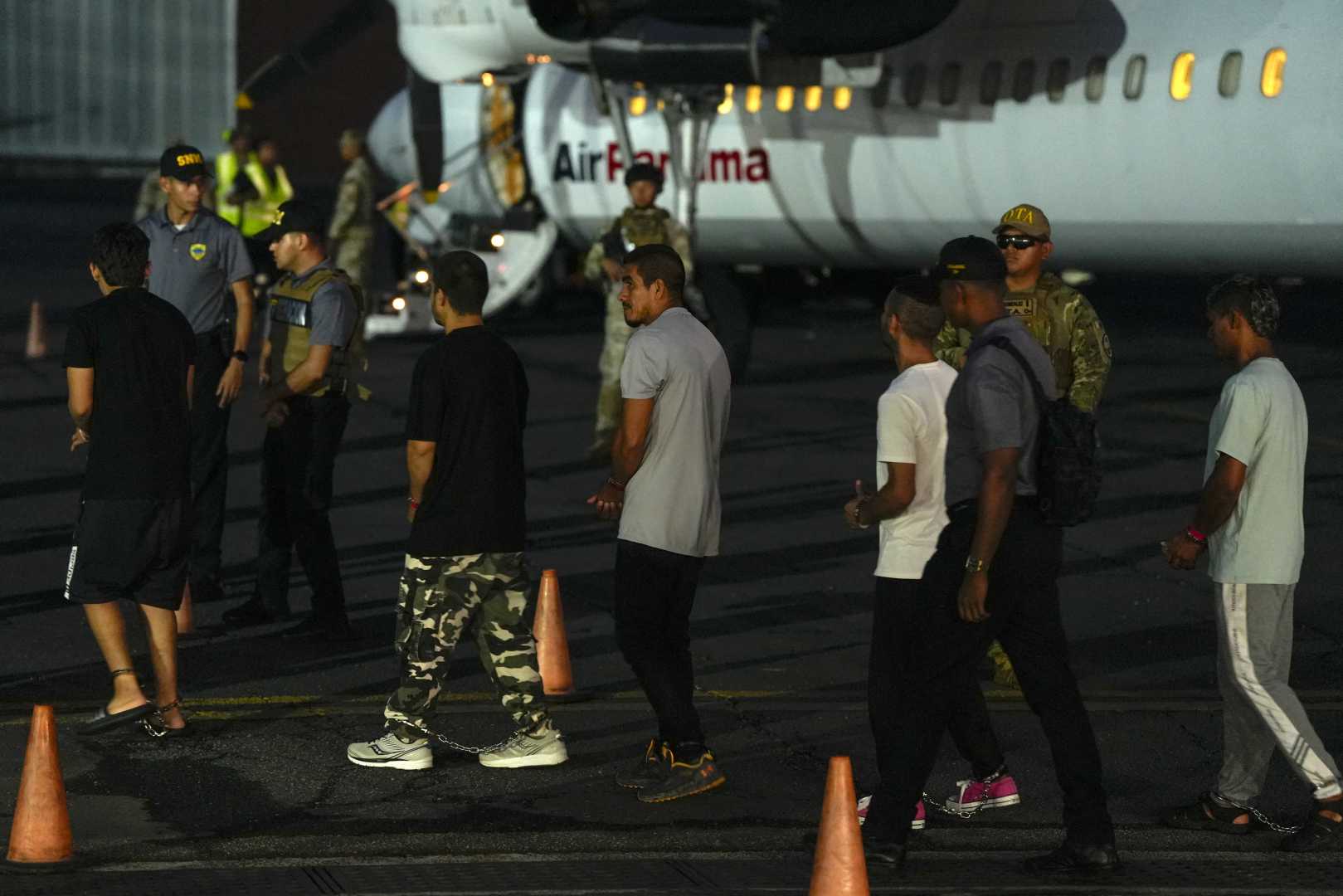Politics
Trump Administration’s Controversial Deportation Initiative Targets Migrants

Washington — The United States has initiated deportations of unauthorized migrants from various African and Asian nations to Panama, a significant diplomatic development under the Trump administration’s aggressive immigration policies. On Wednesday, a U.S. military flight transported migrants, including families with children from Afghanistan, China, India, Iran, and Uzbekistan, to Panama, marking the first known deportation of its kind. Another flight is set for Thursday, with expectations of additional deportees from Africa, particularly from Cameroon.
Panama’s foreign ministry confirmed that it received the first deportation flight under an agreement allowing the U.S. to relocate non-Panamanian migrants to the Central American country. The foreign ministry noted that the U.S. government would cover the costs associated with these deportations. This new protocol represents an innovative strategy aimed at overcoming longstanding challenges faced by the U.S. in deporting migrants, particularly from Africa, due to vast distances and resistance from foreign governments to accept deportees.
The relocation of migrant deportees to Panama, a critical transit point for mass migration in recent years, showcases a turning point for the Trump administration’s approach to immigration, which had historically struggled with repatriating individuals from these regions. “With this agreement, we can now bypass obstacles we’ve encountered with various governments,” an official, speaking on the condition of anonymity, explained.
Critics of the policy argue that relocating migrants to Panama exposes them to significant risks. Advocacy organizations have raised concerns about the lack of due process for deportees. Many migrants from Cameroon, for example, are seeking asylum in the U.S. due to violence and political instability at home. “We cannot send vulnerable individuals back to dangerous situations,” said a representative from a human rights organization.
This deportation strategy aligns with the Trump administration’s broader crackdown on illegal immigration, which has included similar agreements with countries such as El Salvador and Guatemala, both of which have consented to accept U.S. deportees, even if they are not citizens of those nations. El Salvador’s President Nayib Bukele has expressed willingness to detain suspected members of gangs expelled from the U.S.
Advocates are wary about the implications of these deportation agreements, particularly concerning the potential for human rights violations and the treatment of migrants. Discussions are ongoing regarding other potential arrangements, including proposals to send third-country nationals to nations like Guyana.
Panama’s acceptance of these deportees coincides with ongoing discussions about the Panama Canal, a strategic waterway the U.S. relinquished in 1999. Trump officials have expressed interest in reevaluating U.S. influence over the canal, which leaders in Panama have dismissed, stating that no agreements exist to facilitate American oversight.
The challenges of migration have surged in Panama, especially through the Darién Gap, which has become a crucial route for migrants heading towards the U.S. In 2023, over 500,000 migrants crossed the Darién from Colombia to Panama, with the number decreasing slightly but remaining high into 2024.
As these deportation flights continue under the Trump administration’s directives, the evolving migration dynamics and international agreements will raise profound questions about human rights, legal processes, and the safety of individuals being deported. The administration’s strategies reflect a complex interplay of diplomacy and immigration policy facing fresh scrutiny and debate.












